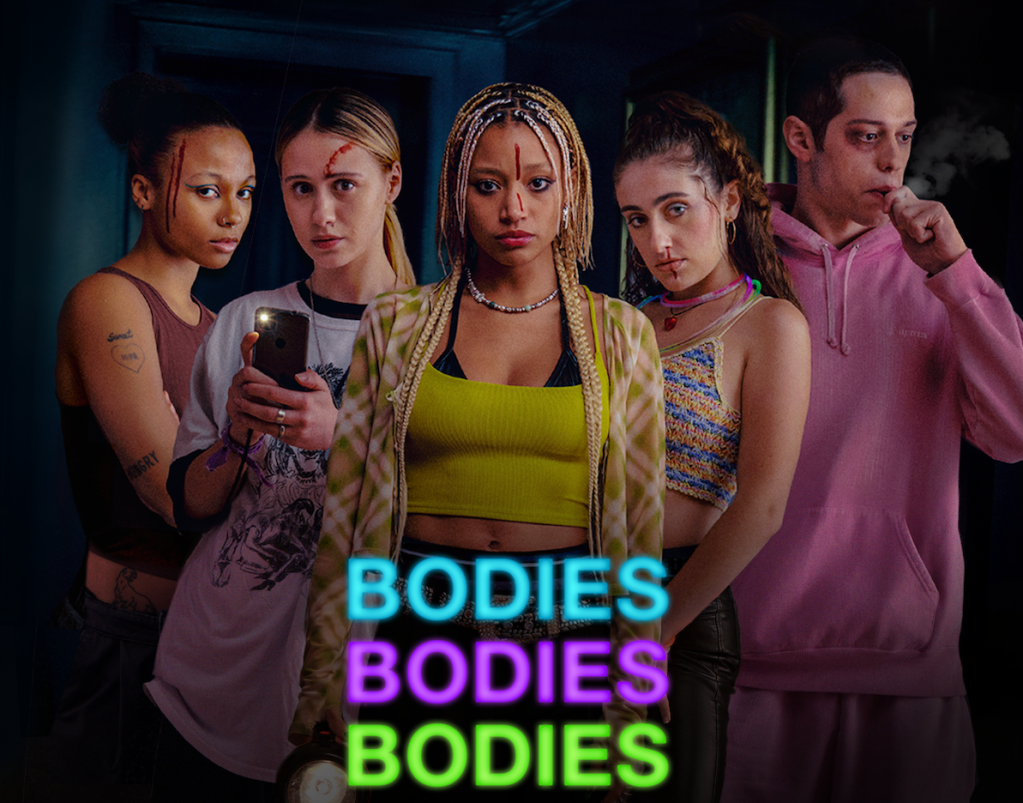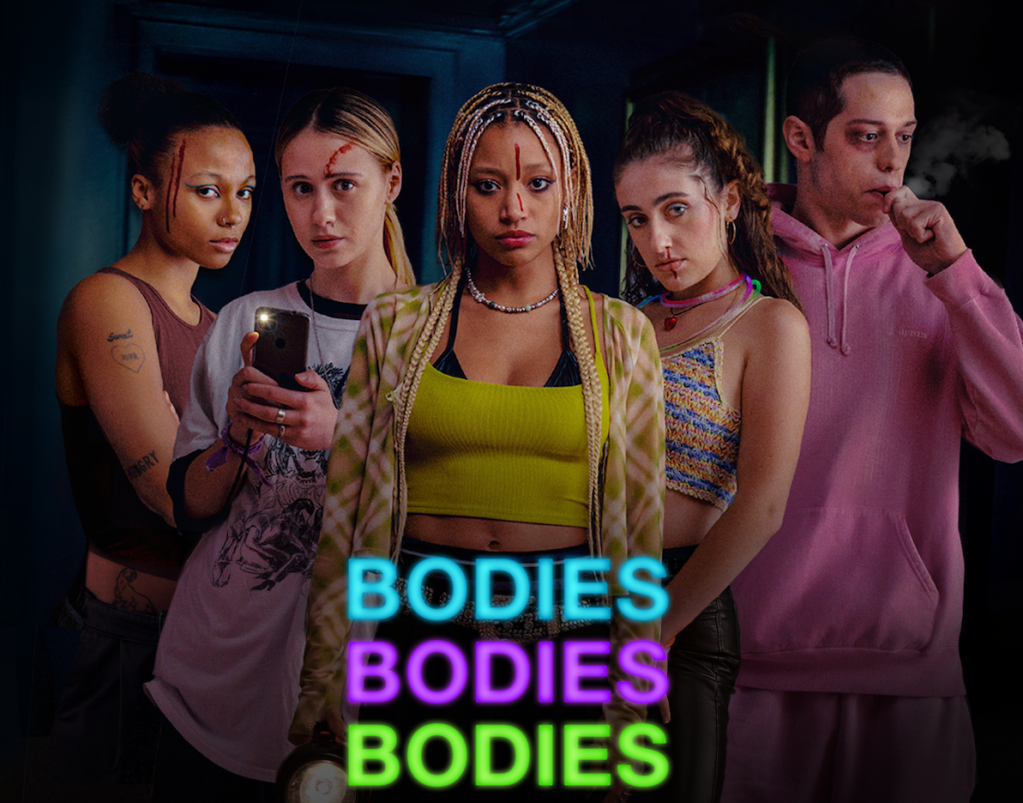A24 slasher film ‘Bodies Bodies Bodies’ has been making headlines since its first trailer dropped but there’s not enough being said about how well the script holds up a mirror to the way Gen Z weaponizes words.

Source: Courtesy / A24
“There’s something about the way these characters completely refuse to take accountability when they believe they have a culture of accountability, but they deflect their privilege,” Amandla Stenberg told Global Grind.”
The film stars Amandla Stenberg as the newly sober Sophie, bringing her new girlfriend Bea (Maria Bakalova) to meet her longtime friend group which includes her best friend David (Pete Davidson) his girlfriend Emma (Chase Sui Wonders), their friends Jordan (Myha’la Herrold) and Alice (Rachel Sennott) and Alice’s new boyfriend Greg (Lee Pace), while they wait out a storm at David’s parents’ house. Tensions run high amongst the group, who clearly have a lot of (mostly) unspoken history, but things get really panicky when one of them is discovered dead.
There’s been a lot made about what the film says about the generation they’re portraying, but all criticism aside — we found ‘Bodies Bodies Bodies’ to be at its most charming when the script capitalizes on the way Gen Z has manipulated language to the point that certain words have become weapons.
“There’s so much specific language that Gen Z has, which is amazing, but also it’s a way to hide, I think,” Chase Sui Wonders told Global Grind Sr. Content Director Janeé Bolden.
“I feel like, honestly my favorite and least favorite is triggered,” Sui Wonders added. “I use triggered all the time, but I feel like as a defense mechanism, you say triggered and you’re the immediate victim and the person you use it on has no more defense because it’s like, ‘Oh, they’re triggered.’ Suddenly their trauma and their past is brought into it so they can do no wrong. I think the double edge of all these words, make them so awesome and powerful but also like slippery slope.”
In our interview with Amandla Stenberg, Maria Bakalova and Myha’la Herrold, Stenberg described her character as a traditional “narcissist lovebomber,” someone easy to become “entangled” with. It’s not lost on us that these are all terms that have been central to pop culture conversation in the last few years.
While it’s difficult to pinpoint how any one person in the film is most toxic, Pete Davidson’s character David is a shining example of the master manipulation operated by those who are most privileged.
“I like when Pete has his line where he goes, “Oh I’m gaslighting you? What are you going to do next? Call me a narcissist? A foot soldier of the white supremacist patriarchy?” Stenberg told Global Grind. “I feel like that line so encapsulates the nature of that character and also how terrifying wolf in sheep’s clothing white men in these times can be, because there’s this culture of them understanding what it means to recognize their privilege and engage with that conversation in that language but then I almost feel like that privilege can come out in even more insidious, twisted ways.”
Bakalova agreed that Davidson’s role might be the best example of illuminating Gen Z misbehavior at large.
“It’s documenting the generation and usage of language of this generation because he’s putting it on the screen,” Bakalova told GlobalGrind. “He’s arrogant but he’s saying it so we can see how people are behaving in reality.”
It’s not lost on us either that one of the key twists of the film hinges on Gen Z’s obsession with social media. We don’t want to spoil anything so we can’t fully unpack that now, but we’re looking forward to a future when this generation will look back on ‘Bodies Bodies Bodies,’ and look beyond the the shallow characterization at the way the film really works as a reflection of the times and the toxic terms that ruled them.
















